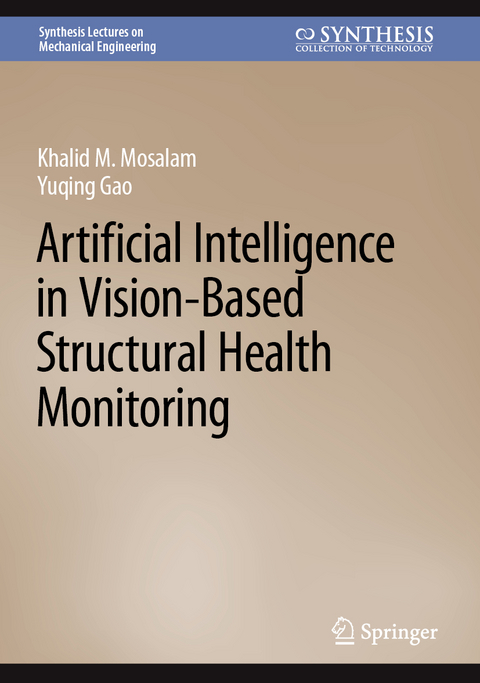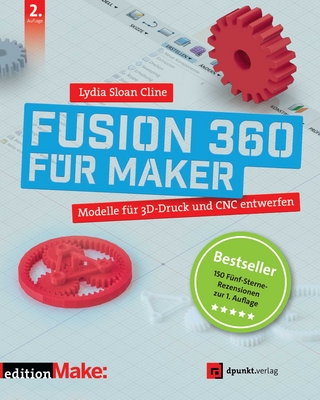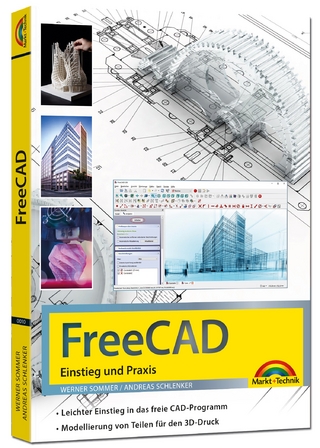
Artificial Intelligence in Vision-Based Structural Health Monitoring
Springer International Publishing (Verlag)
978-3-031-52406-6 (ISBN)
This book provides a comprehensive coverage of the state-of-the-art artificial intelligence (AI) technologies in vision-based structural health monitoring (SHM). In this data explosion epoch, AI-aided SHM and rapid damage assessment after natural hazards have become of great interest in civil and structural engineering, where using machine and deep learning in vision-based SHM brings new research direction. As researchers begin to apply these concepts to the structural engineering domain, especially in SHM, several critical scientific questions need to be addressed: (1) What can AI solve for the SHM problems? (2) What are the relevant AI technologies? (3) What is the effectiveness of the AI approaches in vision-based SHM? (4) How to improve the adaptability of the AI approaches for practical projects? (5) How to build a resilient AI-aided disaster prevention system making use of the vision-based SHM?
This book introduces and implements the state-of-the-art machine learning and deep learning technologies for vision-based SHM applications. Specifically, corresponding to the above-mentioned scientific questions, it consists of: (1) motivation, background & progress of AI-aided vision-based SHM, (2) fundamentals of machine learning & deep learning approaches, (3) basic AI applications in vision-based SHM, (4) advanced topics & approaches, and (5) resilient AI-aided applications. In the introduction, a brief coverage about the development progress of AI technologies in the vision-based area is presented. It gives the readers the motivations and background of the relevant research. In Part I, basic knowledges of machine and deep learning are introduced, which provide the foundation for the readers irrespective of their background. In Part II, to verify the effectiveness of the AI methods, the key procedure of the typical AI-aided SHM applications (classification, localization, and segmentation) is explored, including vision data collection, data pre-processing,transfer learning-based training mechanism, evaluation, and analysis. In Part III, advanced AI topics, e.g., generative adversarial network, semi-supervised learning, and active learning, are discussed. They aim to address several critical issues in practical projects, e.g., the lack of well-labeled data and imbalanced labels, to improve the adaptability of the AI models. In Part IV, the new concept of "resilient AI" is introduced to establish an intelligent disaster prevention system, multi-modality learning, multi-task learning, and interpretable AI technologies. These advances are aimed towards increasing the robustness and explainability of the AI-enabled SHM system, and ultimately leading to improved resiliency.
The scope covered in this book is not only beneficial for education purposes but also is essential for modern industrial applications. The target audience is broad and includes students, engineers, and researchers in civil engineering, statistics, and computer science.
Unique Book Features:
-Provide a comprehensive review of the rapidly expanding field of vision-based structural health monitoring (SHM) using artificial intelligence approaches.
-Re-organize fundamental knowledge specific to the machine and deep learning in vision tasks.
-Include comprehensive details about the procedure of conducting AI approaches for vision-based SHM along with examples and exercises.
-Cover a vast array of special topics and advanced AI-enabled vision-based SHM applications.
-List a few potential extensions for inspiring the readers for future investigation.
Mosalam obtained his BS and MS from Cairo University and his PhD from Cornell University in Structural Engineering. In 1997, he joined the Department of CEE, UC-Berkeley where he is currently the Taisei Professor of Civil Engineering, Director of the PEER Center, and Associate Director for Earthquake Hazard of the StEER Network. He conducts research on performance and health monitoring of structures including data analytics using machine and deep learning approaches for vibration-based and vision-based techniques. He is active in assessment and rehabilitation of essential facilities, and in research related to building energy efficiency and sustainability. His research covers large-scale computation and experimentation including hybrid simulation. He is the recipient of 2006 ASCE Huber Civil Engineering Research Prize, 2013 UC-Berkeley Chancellor Award for Public Services, 2015 EERI Outstanding Paper Award, 2020 ASCE Best Journal Paper in Materials and Structural Response, and 2021 Hojjat Adeli Award for Innovation in Computing. He is a Corresponding Member of the Academia de Ingeniería México, and an Elected Fellow of ASCE. He was a Visiting Professor at Kyoto University, Japan; METU, Turkey; and NTU, Singapore. Mosalam teaches classes related to the Finite Element Method (FEM), Structural Analysis, Structural Dynamics, Design and Behavior of Reinforced and Prestressed Concrete Structures, and Experimental Methods in Structural Engineering.
1. Introduction.- Part I Preliminaries.- 2. Vision Tasks in Structural Health Monitoring.- 3. Basics of Machine Learning.- 4. Basics of Deep Learning.- Part II: Introducing AI to Vision-based SHM.- 5. Structural Vision Data Collection & Dataset.- 6. Transfer Learning for Image Recognition.- 7. Structural Damage Detection (Localization).- 8. Structural Damage Segmentation.- Part III: Advanced topics of AI in Vision-based SHM.- 9. Generative Adversarial Network for Structural Image Data Augmentation.- 10. Semi-Supervised Learning.- 11. Active Learning.- Part IV: Resilient AI Applications in Vision-based SHM.- 12. Multi-Modal Learning.- 13. Multi-Task Learning.- 14. Interpreting CNN in Structural Vision Tasks.- 15. Future Extensions
| Erscheinungsdatum | 06.03.2024 |
|---|---|
| Reihe/Serie | Synthesis Lectures on Mechanical Engineering |
| Zusatzinfo | XXXV, 374 p. 171 illus., 161 illus. in color. |
| Verlagsort | Cham |
| Sprache | englisch |
| Maße | 168 x 240 mm |
| Themenwelt | Informatik ► Grafik / Design ► Digitale Bildverarbeitung |
| Informatik ► Theorie / Studium ► Künstliche Intelligenz / Robotik | |
| Technik ► Bauwesen | |
| Schlagworte | computer vision • DataSets • Deep learning • images • Structural Health Monitoring |
| ISBN-10 | 3-031-52406-3 / 3031524063 |
| ISBN-13 | 978-3-031-52406-6 / 9783031524066 |
| Zustand | Neuware |
| Informationen gemäß Produktsicherheitsverordnung (GPSR) | |
| Haben Sie eine Frage zum Produkt? |
aus dem Bereich


